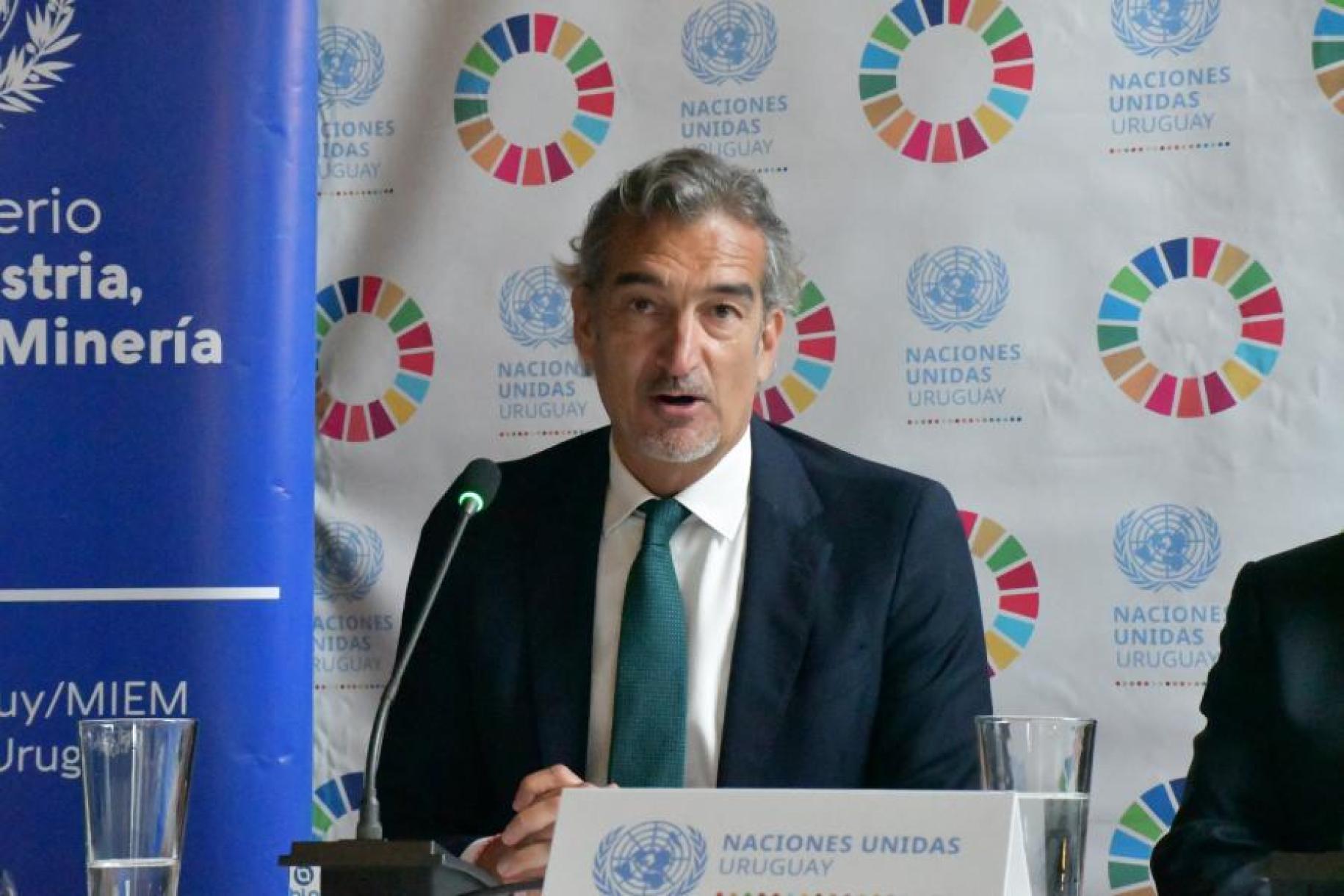Innovative Finance for Clean Tech Solutions in Uruguay

From wind, solar, to hydro power, renewable energy is key to tackling the global climate crisis and ending the world’s addiction to fossil fuels. But the path towards a green energy transition is not straightforward one.
Today, Uruguay finds itself at a critical point in this journey. Although almost all of its electricity is now derived from renewable sources, the country’s primary energy matrix, which is the system responsible for distributing energy throughout the country, is still 37 per cent dependent on fossil fuels.
To close this gap and increase the efficiency of the national electricity system, the Government of Uruguay have committed to a ‘second energy transition’ through the adoption of low-carbon technologies in the transport, industrial, residential and commercial sectors.
To make this transition a reality, significant new investments in the renewable energy sector and climate financing are needed. With support from the Joint SDG Fund, the Resident Coordinator’s Office in Uruguay have partnered the national authorities to support the design and set-up the Renewable Energy Innovation Fund (REIF); an innovative financing instrument which promotes investments in clean energy technology across the country.
Innovative financing for decarbonization
Building on the expertise of the UN Industrial Development Organization (UNIDO), UN Development Programme (UNDP) and UN Women, the Resident Coordinator in Uruguay has played a pivotal role in rallying a diverse network of partners together and forging a new path of cooperation between development actors, the public sector and commercial banks.
This public-private partnership is enabling the REIF to combine funds from the UN and local banks to provide flexible loans to businesses which are driving Uruguay’s clean energy transition. The Fund is prioritizing projects in four specific areas, including technologies and infrastructure for electric mobility, battery recycling and management, new energy storage solutions and technologies aimed at transforming electrical energy into another type of energy with storage capacity such as electric boilers.
Investing with social impact
But it’s not just energy infrastructure which the REIF is focused on. For Uruguay’s clean energy transition to be sustainable, investments must also accelerate progress in other crucial areas, including helping to nurture social inclusion, advance gender equality and create new jobs.
With women and girls continuing to experience the heaviest impacts from climate change and rising carbon emissions, the REIF is placing a particularly strong emphasis on supporting projects which promote gender equality. In fact, at least 45 per cent of the Fund’s investments are allocated to projects that have clear policies and actions to advance gender equality and women’s economic empowerment.

According to the UN Resident Coordinator in Uruguay, Pablo Ruiz Hiebra, the REIF is a proof of concept for socially sustainable investment.
"Uruguay can help us learn better ways of doing business, with a better economic, social and environmental impact. The REIF should help us better differentiate between two projects with the same financial profitability, but that affect their environmental and social environment differently. Today this is not easy,” he explained.
Towards a clean energy future
Last month, the UN in Uruguay together with the Ministry of Industry, Energy and Mining announced the financing of the first three projects of REIF. The companies, which received an initial USD 1 million loan, are working to reduce the transportation sector's reliance on fossil fuels by investing in electric mobility and energy efficiency technologies.
Speaking at the launch event in October, the Minister of Industry, Energy and Mining, Omar Paganini explained how the Fund is helping accelerate national efforts to shift towards a 100 per renewable energy matrix.
“The REIF is a model that we want to be successful and multiply, because it is a way to align the objectives of the national government to decarbonize the economy, with the objectives of companies to grow and be profitable, without neglecting the triple impact- the environmental, economic and social impact.”
With the first set of loans announced, the REIF is now looking to finance other projects which will help transform Uruguay into a clean energy economy. Together, with the Joint SDG Fund, the UN in Uruguay is standing with the national authorities invest in a cleaner, greener future for all.
This story was adapted from a version originally published by the Joint SDG Fund. To learn more about the work of the UN in Uruguay visit uruguay.un.org. Learn more about how the UN is supporting the six transitions on the ground here.













